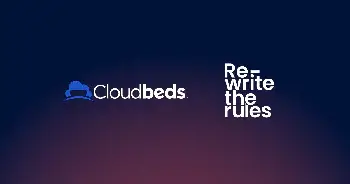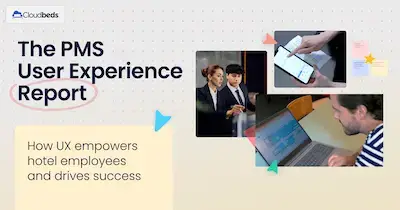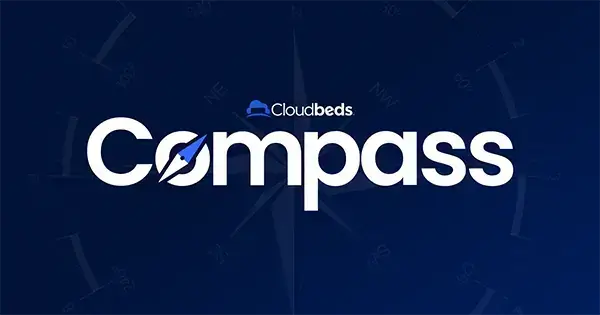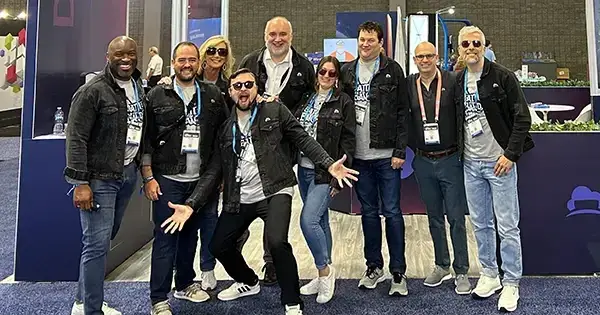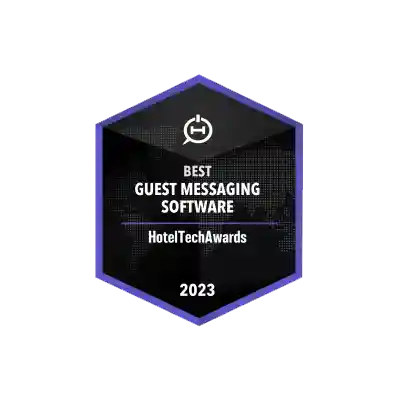
By Matt Barr
Running a hospitality business is hard. Whether you’re a host with just a few rentals on Airbnb, a seasoned property manager, or manage a boutique hotel or a global luxury resort, it’s challenging to keep up with the endless to-do lists while delivering memorable guest experiences.
Hospitality professionals have historically relied on spreadsheets and generic task management tools for the problem, but these workarounds complicate task assignments, convolute internal communication, and jeopardize property readiness. More competition and increased traveler expectations continue to shrink the margin of error for delivering quality accommodations and unique experiences.
As technology continues to play a more crucial role in hospitality operations, let’s explore how streamlining processes can significantly impact an operator’s business and influence the overall guest experience.
Why does this matter for hospitality operators?
Gone are the days when hospitality operations relied solely on manual processes and traditional methods. Today, technology has become an integral part of every aspect of the industry. From managing reservations and check-ins to enhancing guest experiences, technology has revolutionized how hospitality operators conduct business.
One of the primary benefits of technology for hospitality operators is the efficiency it brings to day-to-day operations. Integrated property management software like Cloudbeds, smart locks, and IoT devices have streamlined processes, reducing the likelihood of errors and improving overall operational efficiency. This not only saves time but empowers staff to focus on delivering a more personalized and exceptional guest experience.
So, what exactly is task management?
Let’s examine the work that must take place between a guest check-out at 10 a.m. and a new guest check-in at 3 p.m. that day. There are many operational tasks that need to be accounted for:
- Ensuring the guest checks out on time
- Assigning housekeepers, inspectors, and service partners tasks at the unit
- Providing instructions to staff to ensure work performed complies with brand standards
- Triaging any maintenance issues that arise and looping in the correct department
- Managing completion of work throughout the day and re-prioritizing based on guest status
- Communicating room-readiness and check-in instructions to the incoming guest
Of course, the work doesn’t stop when the next guest arrives, as there’s also:
- Communicating to ensure the guest has everything they need for a great stay
- Coordinating delivery of in-stay offerings and concierge
- Managing and resolution of any new maintenance issues that arise
- Laundering and linen preparation for the next arrival
Not to mention, managers are tasked with doing all of these items at scale with multiple rooms and even more guests, and often across multiple locations with a portfolio of unique properties.
These challenges put a lot of pressure on hospitality businesses and staff. The ability to offload and automate these operational tasks with technology is a game-changer for the industry.
7 ways technology can help you run a smoother operation
In this short video, Matt Barr, VP of Sales & Customer Success at Breezeway, shares seven ways technology can help lodging businesses run a smoother operation.
1. Streamline housekeeping scheduling
Balancing last-minute reservation changes, team schedules, and condensed timeframes make scheduling difficult. The manual nature of this often results in missed work or last-minute adjustments, which lead to more urgent needs and can lower guest satisfaction.
With the help of an operations tool, you can use automated scheduling workflows to identify these changes and smartly assign the right work to the right person at the right time. Create automated workflows and tasks based on rules you set for each check-out, check-in, and back-to-back reservation so you never miss a clean again.
2. Alert guests about property readiness in real time
The most personal, detailed, and automatic way to differentiate your business is by supporting your operations with great guest communication. Tying a service request directly to a work order or prompting early check-in when properties are ready can enhance your guest’s experience and elevate your brand.
Operators are turning to automated messaging tools to respond to guests with increased timeliness. With check-out messaging tied to your operations tool, a simple message confirming the guest checked out can prompt your cleaning staff to get a head start at the property, and standard back-and-forth communication can generate a task or work order for your team to act on. Powering your operations with purposeful client communication helps create seamless interactions for an elevated guest experience.

3. Increase staff efficiency in the face of staffing shortages
A recent survey of 200 hotels conducted by the American Hotel & Lodging Association (AHLA) revealed that 87% of hotels in the United States do not have enough staff, and 36% of the respondents cited severe staff shortages.
In response, a focus on optimizing operations and seeking new ways to do more with less is at the forefront of operators’ minds. That’s where technology can help.
A task management tool can increase the accountability of your team and help them be successful. By setting up automated processes and clear instructions, you can remove questions like “What’s next?” and “Is a unit ready to be inspected?” Additionally, having this in a visual dashboard can help your team understand how their work influences the guests’ experience and showcase the value of their work.
4. Prevent costly mistakes with smart task management
Mistakes like a poorly communicated message or a missed clean are a nightmare you’ll no longer have to deal with. The more you can automate, the fewer things you need to remember, the less prone you are to error, and the less likely you are to have gaps in communication.
A task management tool can automatically notify your team of reservation changes, maintenance issues, or early checkouts, allowing them to quickly triage issues without the back and forth and gain valuable time back in their day.
5. Be proactive with preventative maintenance
Tracking quality work at every unit can be challenging, especially during peak with even tighter turnaround times. By developing preventative maintenance schedules, frequent deep cleans, safety inspections, and inspection reports, your team can stay ahead of the curve and prevent issues before they arise, giving you the confidence that guests will arrive at a picture-perfect property.
With an operations tool, you can create a preventative maintenance checklist and automatically schedule your inspector to ensure safety requirements are checked at regular intervals. Then, review and easily access inspection reports to document the condition of key assets in the unit, before or after the guest’s stay.
6. Ensure quality and consistency with digital checklists
52% of hospitality operators reported quality assurance as their top operational challenge in Breezeway’s 2023 Property Operation Report. While tech can’t complete tasks for you, it can equip your staff with user-friendly tools, like a mobile app, so they can perform detailed work in the field that complies with your company’s brand standards.
Customizable checklists ensure the unique attributes of each unit are addressed and help cleaning and maintenance teams complete quality and consistent work every time. They can work faster and more diligently with clear instructions at their fingertips. Checklists often include photos so that cleaners are confident in how the unit is supposed to look after a turnover, and you can require photo uploads from them to gain confidence in guest readiness.
7. Use task management data to further optimize your operations
Not only can tech help your team work more efficiently, but it can provide an in-depth analysis of your company operations and performance with data on tasks, reported issues, staff performance, guest communication, and more.
If you’re curious about how your business could be run more efficiently, a great place to start is tracking working in an operations platform with reporting capabilities. By tracking work, a reporting tool can aggregate and segment the data to identify trends in staff performance, guest experiences, and property care so that you can make more informed decisions for your business.
The value of integrations to build your optimal tech stack
In an industry where guest satisfaction and operational efficiency are paramount, embracing technological innovations is no longer optional but essential. Your task management tool must be integrated with your PMS to really supercharge your operations. By integrating these technologies, hospitality professionals can streamline operations, enhance the guest experience, and ultimately drive more reservations, ensuring long-term success in a competitive market.
A post by Breezeway
Breezeway’s award-winning property operations and experience platform helps coordinate, communicate, and verify detailed work at properties. Powering over 30M property care tasks, Breezeway helps thousands of short-term rental managers and hospitality operators increase operational efficiency, eliminate manual work, and boost service revenue.
At Cloudbeds, we’re proud to partner with leading solutions like Breezeway to help lodging operators maximize efficiency at their properties. Learn how you can automate your cleaning, maintenance, and operations today.

